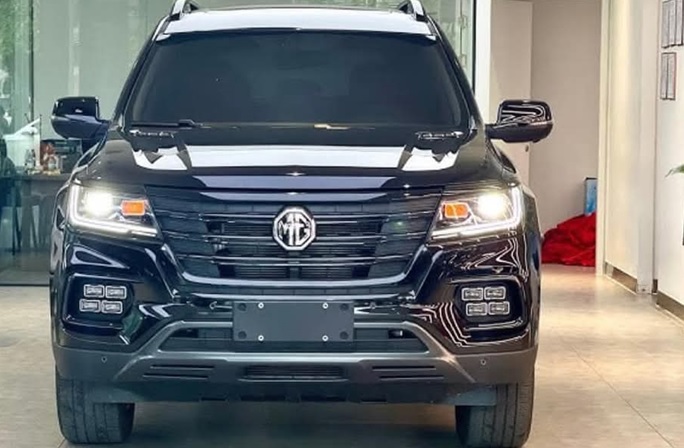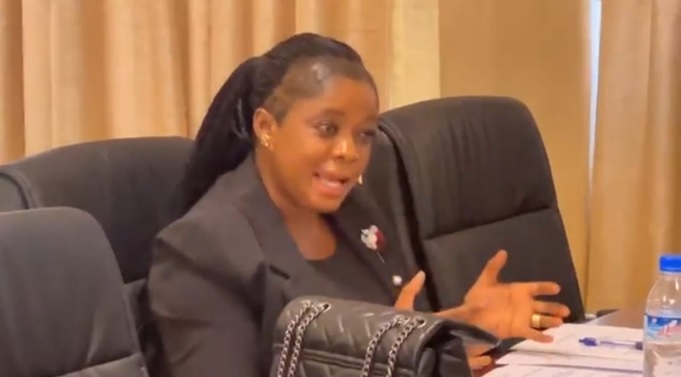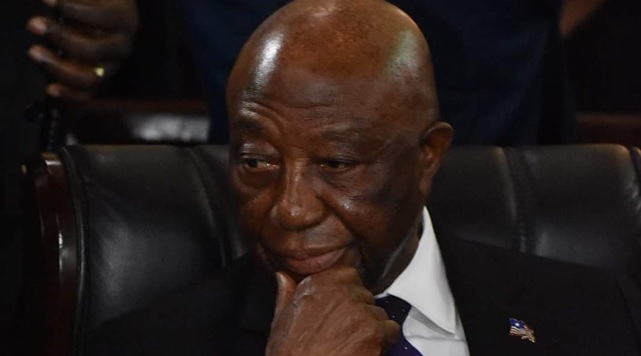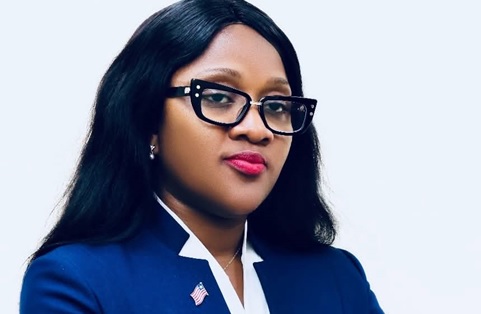MONROVIA, LIBERIA – A wave of controversy has enveloped the National Oil Company of Liberia (NOCAL), focusing on its CEO, Rustonlyn Suacoco Dennis, who is facing serious accusations of financial misconduct. The scandal centers around an alleged misappropriation of public funds in connection with a luxury vehicle purchase approved by Dennis. The accusations have sparked widespread public outrage, with critics questioning her integrity and the transparency of her leadership at NOCAL.
Prominent activist Martin Kollie has been vocal in his criticism, linking Dennis’s current position at NOCAL to her controversial tenure as a lawmaker. Kollie highlighted that before taking the reins at the state-owned enterprise, Dennis served as the Representative for District #4, Montserrado County, from 2018 to 2023. He pointed out that Dennis’s electoral defeat in 2023, where she garnered only a small fraction of the vote, was a clear indication of her rejection by the electorate. Despite this, President Joseph Boakai appointed her to the influential role at NOCAL, a decision that Kollie argues reflects poorly on the president’s commitment to eliminating corruption and promoting good governance.

The controversy gained further momentum when it was revealed that Dennis authorized the disbursement of US$75,000 from NOCAL’s account in November 2024 for the purchase of a single vehicle. Official records show that NOCAL had a significant balance at the time, yet the purchase was questioned. Investigations into the deal revealed that the actual cost of the vehicle, a 2024 MG Rx8 SUV, was far lower than the amount approved. Cactus Motors, the dealership where the car was purchased, listed the vehicle at a price closer to US$45,000, including a discount. This disparity has raised alarms, with Kollie accusing Dennis of inflating the price and requesting an additional US$30,000 in kickbacks, which was allegedly diverted for personal use.
Further allegations emerged when it was reported that Dennis had registered the second vehicle obtained through the inflated purchase under her private company, Tanti Group of Companies, after her initial kickback request was denied by the dealership. Kollie argued that this action was part of a larger pattern of corruption, highlighting how Dennis might have bypassed legal restrictions set by the Car Import and Purchasing Policy, which limits vehicle purchases for public officials to US$45,000.
Additionally, Kollie accused Dennis of using NOCAL’s Corporate Social Responsibility (CSR) funds to distribute financial assistance to her political supporters in District #4. He claimed that the money was misused for purposes unrelated to NOCAL’s mission, and that Dennis had also funded development programs for her supporters, using public resources for personal gain.
The accusations did not stop there. Kollie also raised concerns about a questionable US$585,000 consultancy contract signed by Dennis with West Africa Geo-Services (WAGS). He alleged that Dennis signed the agreement without the proper approval from the Ministry of Justice or the Ministry of Finance, thus violating established legal procedures. According to Kollie, Dennis had already paid out US$300,000 to WAGS within a short period, fueling suspicions of financial mismanagement and fraud.
Kollie condemned what he described as a deeply corrupt system under President Boakai, accusing the government of allowing figures like Dennis to hold positions of power despite their questionable track records. He emphasized the deepening economic suffering in Liberia, which he attributed to government corruption, calling the situation “manufactured hardship” that harms ordinary citizens.
In light of the revelations, Kollie called on President Boakai to take decisive action, urging him to suspend Dennis immediately and refer her for investigation and prosecution. He also called on the media and the public to remain vigilant and to continue pushing for accountability in the face of what he deemed systemic corruption within the government.







